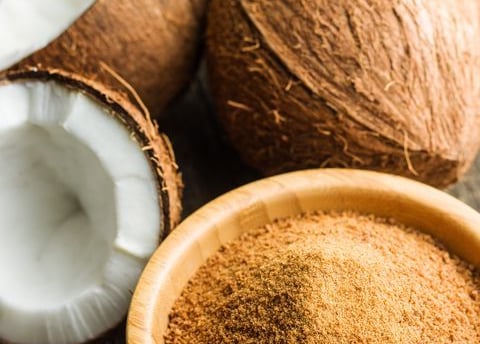Coconut Sugar: A Healthy Sweetener for Baking
Coconut sugar, also known as coconut palm sugar, has gained popularity as a natural and healthier alternative to traditional sweeteners. Derived from the sap of the coconut palm tree, this versatile sweetener offers a unique flavor profile and numerous health benefits, making it an excellent choice for baking.


Coconut sugar, also known as coconut palm sugar, has gained popularity as a natural and healthier alternative to traditional sweeteners. Derived from the sap of the coconut palm tree, this versatile sweetener offers a unique flavor profile and numerous health benefits, making it an excellent choice for baking. Here’s a closer look at why coconut sugar is a healthy sweetener for baking and how to incorporate it into your recipes.
What is Coconut Sugar?
Coconut sugar is made from the sap of the flower buds of the coconut palm tree. The sap is collected, heated, and evaporated to produce granules that resemble brown sugar. Unlike refined white sugar, coconut sugar undergoes minimal processing, retaining more of its natural nutrients.
Health Benefits of Coconut Sugar
Low Glycemic Index: Coconut sugar has a glycemic index (GI) of around 35, compared to white sugar’s GI of 65. A lower GI means it causes a slower, steadier rise in blood sugar levels, making it a better option for those managing diabetes or looking to maintain stable energy levels.
Rich in Nutrients: Coconut sugar contains small amounts of vitamins and minerals, including potassium, magnesium, zinc, iron, and B vitamins. These nutrients are retained due to its minimal processing.
Contains Inulin: Coconut sugar contains inulin, a type of dietary fiber that acts as a prebiotic. Inulin promotes gut health by feeding beneficial bacteria in the digestive system, improving digestion, and supporting the immune system.
Antioxidants: The natural processing of coconut sugar helps retain antioxidants, which can help protect the body from oxidative stress and inflammation.
Using Coconut Sugar in Baking
Coconut sugar can be used as a one-to-one replacement for white or brown sugar in most baking recipes. Its rich, caramel-like flavor adds depth to baked goods, enhancing the overall taste. Here are some tips for using coconut sugar in baking:
Texture Consideration: Coconut sugar has a coarser texture than white sugar, which can affect the texture of baked goods. For a smoother texture, you can grind the coconut sugar in a blender or food processor before using it.
Flavor Profile: The caramel-like flavor of coconut sugar complements recipes like cookies, cakes, muffins, and brownies. It adds a unique taste that pairs well with warm spices like cinnamon and nutmeg.
Moisture Content: Coconut sugar retains more moisture than white sugar, which can affect the moisture level in baked goods. Be mindful of this when using it in recipes, as you may need to adjust the liquid ingredients accordingly.
Mixing with Other Sweeteners: If you’re new to using coconut sugar, consider blending it with other natural sweeteners like honey or maple syrup to balance the flavor and texture.
Conclusion
Coconut sugar is an excellent healthy sweetener for baking, offering numerous health benefits and a unique flavor profile. Its low glycemic index, nutrient content, and natural processing make it a better choice than refined sugars. Whether you’re looking to create delicious cookies, cakes, or muffins, coconut sugar can enhance your recipes while promoting better health.
So, the next time you’re in the kitchen, consider reaching for coconut sugar and enjoy its sweet, caramel-like goodness in your baked creations.
